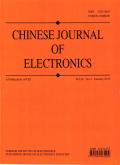New Coefficient Grouping for Complex Affine Layers
IF 3
4区 计算机科学
Q3 ENGINEERING, ELECTRICAL & ELECTRONIC
引用次数: 0
Abstract
Recently, designing symmetric primitives for applications in cryptographic protocols including multi-party computation, fully homomorphic encryption, and zero-knowledge proofs has become an important research topic. Among many such new symmetric schemes, a power function over a large finite field复杂仿射层的新系数分组
目前,设计用于多方计算、全同态加密和零知识证明等加密协议中的对称原语已成为一个重要的研究课题。在许多这样的新的对称格式中,一个大有限域上的幂函数$\mathbb{F}_{q}$是常用的。在本文中,我们重新研究了$\mathbb{F}_{2^{n}}(n\geq 3)$上的替换置换网络(SPN)密码的代数度增长,其s盒被定义为幂函数$P(x)=x^{2^{d}+1}$ ($d\geq 1$)与多项式$A(x)=a_{0}+ \sum\limits_{w=1}^{W}a_{w}x^{2^{\beta_{w}}}$ ($a_{i}\in \mathbb{F}_{2^{n}}$为$0\leq i\leq W$, $a_{w}\neq 0$为$1\leq w\leq W$)的组合。我们提出了一种新的系数分组技术,该技术是基于我们对可能出现在状态中的单项式的新的描述。具体地说,我们提出了一种求代数次增长最快的合适的$(\beta_{1},\beta_{2}, \ldots,\beta_{W})$的新测度和求任意$A(x)$的代数次上界的新方法。特别是对于在ACM CCS 2022上提出的Chaghri,我们获得了更紧的代数度上界。
本文章由计算机程序翻译,如有差异,请以英文原文为准。
求助全文
约1分钟内获得全文
求助全文
来源期刊

Chinese Journal of Electronics
工程技术-工程:电子与电气
CiteScore
3.70
自引率
16.70%
发文量
342
审稿时长
12.0 months
期刊介绍:
CJE focuses on the emerging fields of electronics, publishing innovative and transformative research papers. Most of the papers published in CJE are from universities and research institutes, presenting their innovative research results. Both theoretical and practical contributions are encouraged, and original research papers reporting novel solutions to the hot topics in electronics are strongly recommended.
 求助内容:
求助内容: 应助结果提醒方式:
应助结果提醒方式:


